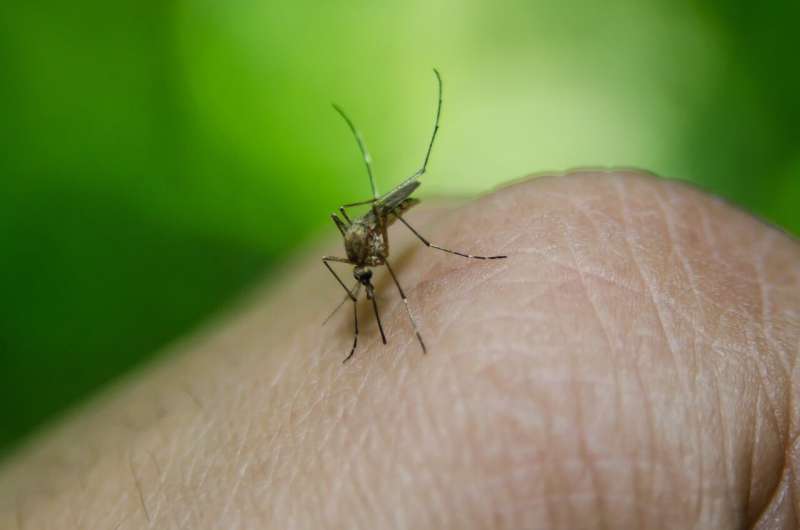
Source: Pixabay/CC0 Public Domain
Analysis of the medical records of nearly 50,000 people who had dengue fever in Taiwan suggests that the disease is associated with an increased risk of depression in the short and long term. Hsin-I Shih and colleagues from National Cheng Kung University and the National Health Research Institutes, Taiwan present these findings in the open access journal PLOS Neglected Tropical Diseases.
People can develop dengue fever after being bitten by a mosquito carrying the dengue virus. Dengue fever can be mild, but it can also be life-threatening, and some people may experience long-term health effects. Previous research has found links between active dengue fever and psychiatric conditions, such as depression and anxiety. However, few studies have examined the long-term risk of such conditions after dengue infection.
To fill this knowledge gap, Shih and colleagues analyzed the medical records of 45,334 dengue patients in Taiwan and, for comparison, 226,670 patients who had not had dengue.
The researchers investigated whether dengue patients were more likely to develop anxiety, depressive disorders and sleep disturbances at different times after infection between 2002 and 2015. To account for other factors that could influence mental health, the dengue patients were grouped with demographically similar non-dengue patients for statistical analysis.
The researchers found that the dengue patients were more likely to develop a depressive disorder at all time frames, including less than three months, three to 12 months, and more than 12 months after their infection. Sleep disturbance was only increased within three to 12 months after infection, and there was no detectable increased risk of anxiety.
When looking more closely at patients whose dengue was severe enough to require hospitalization, researchers found an increased risk of anxiety disorders within the first three months after infection, as well as an increased risk of sleep disorders in the first 12 months. This subgroup also had an increased risk of depression across time frames.
These findings suggest a possible link between dengue fever and subsequent depressive disorder. However, more research is needed to determine whether dengue directly contributes to the development of depression, or whether the association is due to an indirect mechanism.
The authors add: “This study highlights a significant association between dengue fever and an increased risk of depression in both the short and long term. This underscores the need for further research into the mental health consequences of dengue infection.”
More information:
Shih HI, Wang YP, Chi CY, Chien YW (2024) Risks of anxiety disorders, depressive disorders, and sleep disturbances in patients with dengue fever: a nationwide population-based cohort study. PLoS neglected tropical diseases (2024). DOI: 10.1371/journal.pntd.0012239
Quote: Dengue linked to increased short- and long-term risk of depression in Taiwan (2024, July 3) Retrieved July 3, 2024 from https://medicalxpress.com/news/2024-07-dengue-linked-heightened-short-term.html
This document is subject to copyright. Except for fair dealing for private study or research, no part may be reproduced without written permission. The contents are supplied for information purposes only.
 Healthy Famz Healthy Family News essential tips for a healthy family. Explore practical advice to keep your family happy and healthy.
Healthy Famz Healthy Family News essential tips for a healthy family. Explore practical advice to keep your family happy and healthy.


